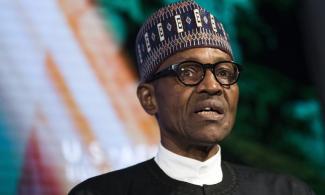
As of September 30, 2022, Nigeria’s total debt stock rose to N44.06 trillion as against N42.84 trillion recorded on June 30, the DMO stated.
Nigeria’s debt profile seems not to be abating as the figure jumped again by over N1 trillion in just three months which is between June and September 2022, a new release by the Debt Management Office has revealed.
As of September 30, 2022, Nigeria’s total debt stock rose to N44.06 trillion as against N42.84 trillion recorded on June 30, the DMO stated.
The debt “comprises the Total Domestic and External Debt Stock of the Federal Government of Nigeria (FGN), all State Governments and the Federal Capital Territory (FCT),” Debt Management Office said in a release on Friday.
According to DMO, the increase in the public debt stock was largely due to new borrowings by the federal government to finance the deficit in the 2022 Appropriation Act, as well as new borrowings by state governments.
With a proposal to further borrow over N11 trillion to fund the 2023 budget deficit, President Muhammadu Buhari may bequeath a debt profile in excess of N55 trillion when he leaves office next May.
Former President Olusegun Obasanjo, under whose leadership Nigeria cleared its external debts, earlier in the year criticised the incumbent regime for accumulating debt for future generations, describing it as a “foolish” and “criminal” act.
But Buhari’s media adviser, Femi Adesina, justified the huge borrowings, saying the regime is borrowing for infrastructural development unlike past governments who looted loans.
SaharaReporters had in September reported how amid the gruelling economic challenges facing the country, the Buhari-led government between January and March 2022 incurred N2trillion in Public Debt, bringing total debts to a record N41trillion.
The country in the first quarter of 2022 alone spent an average of N9.94billion on debt servicing.
“A World Bank report showed that in terms of debt to GDP ratio, Nigeria is low but for debt service to revenue ratio, we are very high. So, if you look at tax to GDP ratio of these other countries, they are in multiples of Nigeria.
“The World Bank survey report of about 197 countries revealed that Nigeria is number 195, meaning we beat only two countries and that was Yemen and Afghanistan and I don’t think we want to be like those places,” DMO’s head, Patience Oliha, had warned in September.